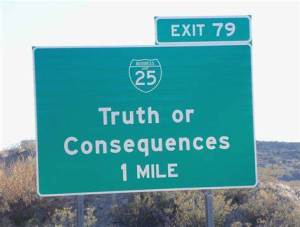It’s been twenty-four hours since the world celebrated what is undoubtedly the most important day in human history.
It’s the day we remember when a tiny group of people, who by the very nature of their existence, came to save humanity once and for all from ourselves.
Of course, I am talking about the “Transgender Day of Visibility.”
Though it’s been around for the last few years, this important day gained great traction in the culture in 2023 after a nine-year-old Christian kid in Tennessee shot up a transgender community, killing several.
Wait a sec.
I am pretty sure that’s not the way it went. Instead, it was a transgender person, who driven by raw hatred toward Christians (according to leaked pages from her manifesto that authorities have yet to release), killed six children and faculty from the Covenant School in Franklin, Tennessee.
To pour salt in the wound, within hours, White House Press Secretary Karim Jean-Pierre expressed remorse—not for the Christian community—but for transgender people: “It is shameful, it is disturbing, and our hearts go out to the trans community as they are under attack right now.”
Apparently, it doesn’t take much these days to confuse the victim with the attacker even in the White House.
But you would never know who the actual victims are if you were one of the few individuals outside of the media who still listen to the Biden Administration and then actually believe what they say.
Out of that brief bit of confusion of major details, President Joe Biden emphasized March 31 as the Transgender Day of Visibility.
Never mind that the LGBTQ group also get:
- Anniversary of the Appointment of the First Openly Gay United States Federal Judge, Joseph Gale – February 6th
- Two-Spirit and Indigenous LGBTQ+ Awareness to Celebration Day – March 21st
- Bisexual Health Awareness Month – March
- National LGBTQ+ Health Awareness Week – Every last week of March
- National Youth HIV & AIDS Awareness Day – April 10th
- National Transgender HIV Testing Day – April 18th
- Nonbinary Parents Day – Every third Sunday in April
- Lesbian Visibility Day – April 26th
- International Family Equality Day – Every 1st Sunday of May
- National Honor Our LGBT Elders Day – May 16th
- International Day Against Homophobia, Transphobia, and Biphobia – May 17th
- Harvey Milk Day – May 22nd
- Pansexual and Panromantic Visibility Day – May 24th
- Queer and Transgender Asian American/Pacific Islander Week – Every last week of May
- Pride Month –June
- Disability Pride Month – July
- Transgender Flag Day – August 19th
- Transgender History Month – August
- Celebrate Bisexuality Day / Bi Visibility Day – September 23rd
- National Gay Men’s HIV/AIDS Awareness Day – Last Friday of September
- Bisexual Awareness Week – Starts on the Sunday before September 23rd
- International Lesbian Day – October 8th
- National Coming Out Day – October 11th
- International Pronouns Day – October 18th
- Spirit Day for LGBTQ+ Youth – October 19th
- Intersex Awareness Day – October 26th
- National Transgender Children Day – October 26th
- International Transgender Day of Remembrance – November 20th
- Transgender Awareness Week – First two full weeks of November
- Pansexual/Panromantic Pride Day – December 8th
- Trans Youth Day – December 28th
Those are just some. I have seen counts of as high as 145 days of LGBTQ holidays within the calendar year.
And Christians only get two.
However, to most of pretty much everyone not directly involved in the LGTBQ movement or politicians who are not trying to virtue signal, these are just normal days on the calendar. We go on with our lives while politicians bloviate the importance of this community to a press that hardly anybody listens to.
That’s why yesterday–March 31, 2024—was an unusual day. It was a perfect storm—a day wherein the Transgender Day of Visibility overlapped with Resurrection Sunday.
On top of Biden not allowing religious symbols during the White House Easter Egg Roll, and making no acknowledgement of the day to the Christian community, the president got really sappy-goopy about the TDOV: “Today, we send a message to all transgender Americans: You are loved. You are heard. You are understood. You belong. You are America, and my entire Administration and I have your back.”[1]

Boy, I’ll sleep good tonight.
Of course, the Christian community did not take this pandering lightly. Social media went absolutely apoplectic, describing their rage at this offense. Even Trump jumped on board, demanding an apology from the White House.
The cynic in me wonders if this is done intentionally. The world seems to love to get a rise out of the Christian community. It almost wants us to react to support their narrative. However, this conspiracy is little more than a sneaking suspicion.
But the Christian community reacted.
The backlash was so great that even Jean-Pierre on Monday morning pooh-poohed the response by using the standard White House go-to deflection—misinformation: “So surprised by the misinformation that’s been out there around this and I want to be very clear” (Of course tone-deaf individuals would be surprised). She then went on to educate us faith-filled simpletons all the while continuing to miss the point: “Every year for the past several years on March 31, Transgender Day of Visibility is marked.”
The truth is, I agree with the frustration and outrage that a lot of Christians felt yesterday. Jesus is my Savior and king, and his act of redemption got snubbed by the groveling over a group of people who are literally groveled over every other day of the year by those trying to score political points.
It was deeply offensive and even downright hurtful. To not even acknowledge the most sacred days of tens of millions is, to me, yet another example of what those in the White House think of us.
Then again, the world hates us. They hate the very thing we stand for. But Jesus said we shouldn’t be surprised by this:
“If the world hates you, keep in mind that it hated me first. If you belonged to the world, it would love you as its own. As it is, you do not belong to the world, but I have chosen you out of the world. That is why the world hates you” (John 15:18-19).
It’s been that way since the first Good Friday.
It should come as no surprise that the world is going to try to deflect from the power of the cross and the empty tomb.
I stewed over this all day yesterday. I was really frustrated and annoyed.
Then it hit me: I literally spent Resurrection Sunday thinking more about the parody show at the White House than I did about the empty tomb.

In truth, Jesus doesn’t need to be defended. Jesus has withstood far tougher attacks from far more powerful kings through history. The Biden Administration’s declaration doesn’t concern him. Yet a lot of Christians like me were more concerned about the slight. I am starting to think Satan used this to get Christians’ attention onto TDOV and not the resurrection itself.
Jesus himself said, “And I, when I am lifted up from the earth, will draw all people to myself” (John 12:32).
The Christ-follower’s job is not to defend Jesus. It is not to be offended on his behalf. Our job is to worship him, to stand in awe of the empty tomb, and to celebrate the risen Savior.
[1] https://www.whitehouse.gov/briefing-room/presidential-actions/2024/03/29/a-proclamation-on-transgender-day-of-visibility-2024/
Leave a Comment






















 Another neighbor has started up an auto repair shop in his home garage. And business must be really good because both sides of the street are packed with broken-down vehicles in need of a mechanic. Since my street has no sidewalk, all of the parked cars leave no place to walk except in the street itself.
Another neighbor has started up an auto repair shop in his home garage. And business must be really good because both sides of the street are packed with broken-down vehicles in need of a mechanic. Since my street has no sidewalk, all of the parked cars leave no place to walk except in the street itself.

